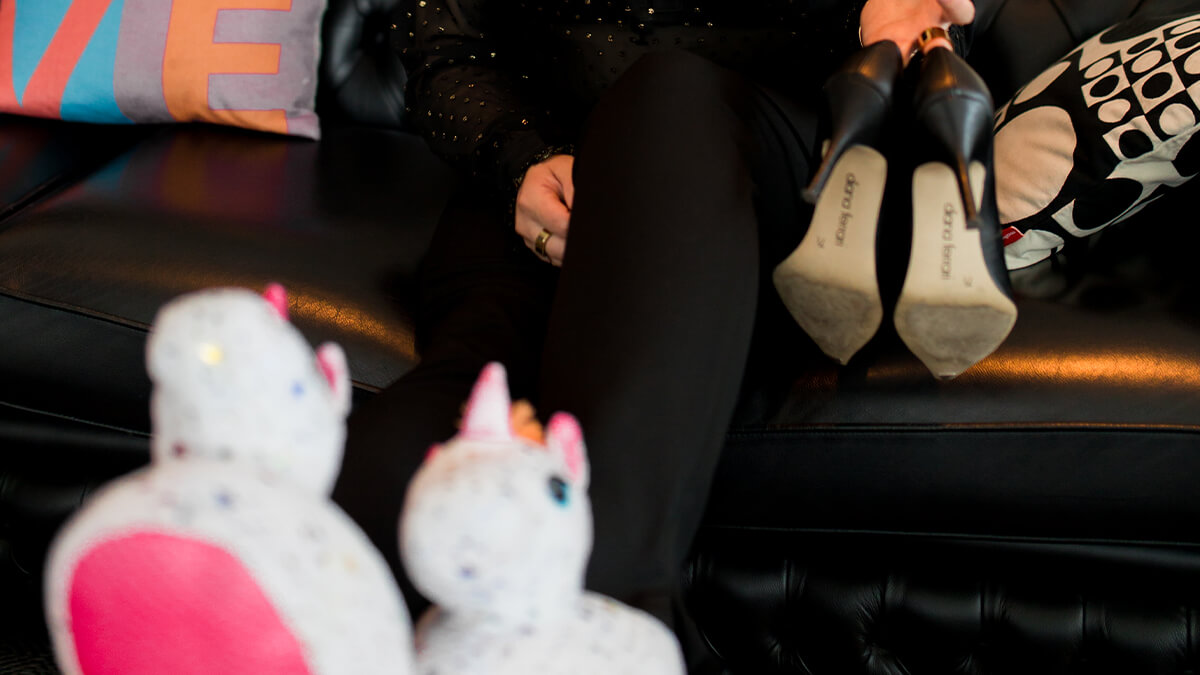In today’s world, where everyone is told they must stand out, the idea of crafting a personal brand feels almost obligatory. It’s as if without one, you’re just another faceless entity drifting through the noise. How is anyone going to find you and know you if you don’t have a personal brand?
The pressure to define yourself, box up your identity, and sell it like a product can be overwhelming. But let’s be honest, the obsession with personal branding can often lead to stress as well as success.
I audit enough social media reports to see what happens to someone when they decide to post something ‘off-brand’. The emotion of a moment outweighed the standard post-creation process and a sense of urgency pushed a post forward. Absolutely nothing wrong with that. But if you’re a person as well as a business, sometimes the backlash can be quite devastating. As humans, we are wired for pattern recognition. This is why strong branding works. But when we see something that doesn’t fit the pattern, or isn’t what we expect to see, then our reactions can sometimes be unpredictable.
In recent years, I’ve felt that expectation to build my own ‘personal’ brand—to be ‘the face’ of my company, elevate my image, and become the essence of what clients buy when they hire my agency. I work in marketing, so I know that personal branding is powerful. It can open doors and create opportunities.
But here’s my truth: I’m not interested in being a brand. I’m not interested in being a product.
I know how this sounds. Stick with me.

I have struggled recently with the integration of my photos on our company social media. I haven’t enjoyed the pressure of maintaining a crafted front-end visual as I grow and change with all the human grace of inconsistency, clumsiness, and hilarity.
I don’t really want to see my face splashed across my company’s website, or to become the focal point of our marketing and PR beyond what is necessary to ensure professional authority. The idea of maintaining a polished exterior, one that can’t accommodate the inevitable messiness of being human, doesn’t appeal to me. I don’t love the awkwardness I end up in when I try to distill and filter how I present myself online and then berate myself later when my goofy ramblings take over in person.
This doesn’t mean I want to disappear into the background. I still have a LinkedIn profile, and I still do my best to share content that is relevant, and create more personalized content that helps connect my business and industry knowledge to our audience. As a business owner, establishing authority and trust is definitely the most crucial act. But I don’t believe that requires transforming myself into a brand. Instead, I want to keep my focus on where it always has been… a regular person who works hard, runs a team that does exceptional work, and still spends the occasional day working in pajamas and unicorn slippers.
I’m in a position where personal branding isn’t so important. My personal connections are, my personal networks are, my skills and authority are. But a carefully crafted brand is not.
There are other positions where the importance of personal branding, especially authentic personal branding, is essential. Influences, public figures, coaches, etc. all rely on a strong personal brand, because they are their business. Particularly in my primary field of healthcare, a personal brand strategy for highly skilled specialists has been hugely impactful on awareness and education.
But this post isn’t for them. They will be searching for posts about how to build a personal brand, not avoid one.
Personal branding has its value, but it’s not the only path. Instead, invest that energy in honing your craft, nurturing relationships, and living your values. The right people will notice, and your reputation will follow. Amazingly, this is still possible to achieve without millions of Instagram likes and followers.
You can promote yourself without a personal brand by focusing on the quality of your work and the relationships you build. Instead of curating a public persona, let your expertise and contributions speak for you. Engage in conversations where your knowledge is valuable, share your insights through thought leadership pieces, and consistently deliver excellence in your field without the pressure to constantly manage how you’re perceived. It’s about trust built over time, rather than the instant recognition that branding often seeks.
By being authentic and showing up where it matters—whether in your work, your community, or professional networks—you can create a reputation that resonates more deeply than any brand ever could. Authenticity, in its purest form, doesn’t need to be announced—it can be seen in your actions, your work, and how you treat others. It’s in the way you consistently show up, even when the spotlight isn’t on you.
So, rather than exhausting ourselves in the pursuit of personal branding, maybe the real challenge lies in trusting that who we are, without all the packaging and promotion, is enough. Let’s focus on doing good work, building meaningful relationships, and living authentically. Because, at the end of the day, the most powerful thing you can be is yourself—not a product, not a brand, just you.

